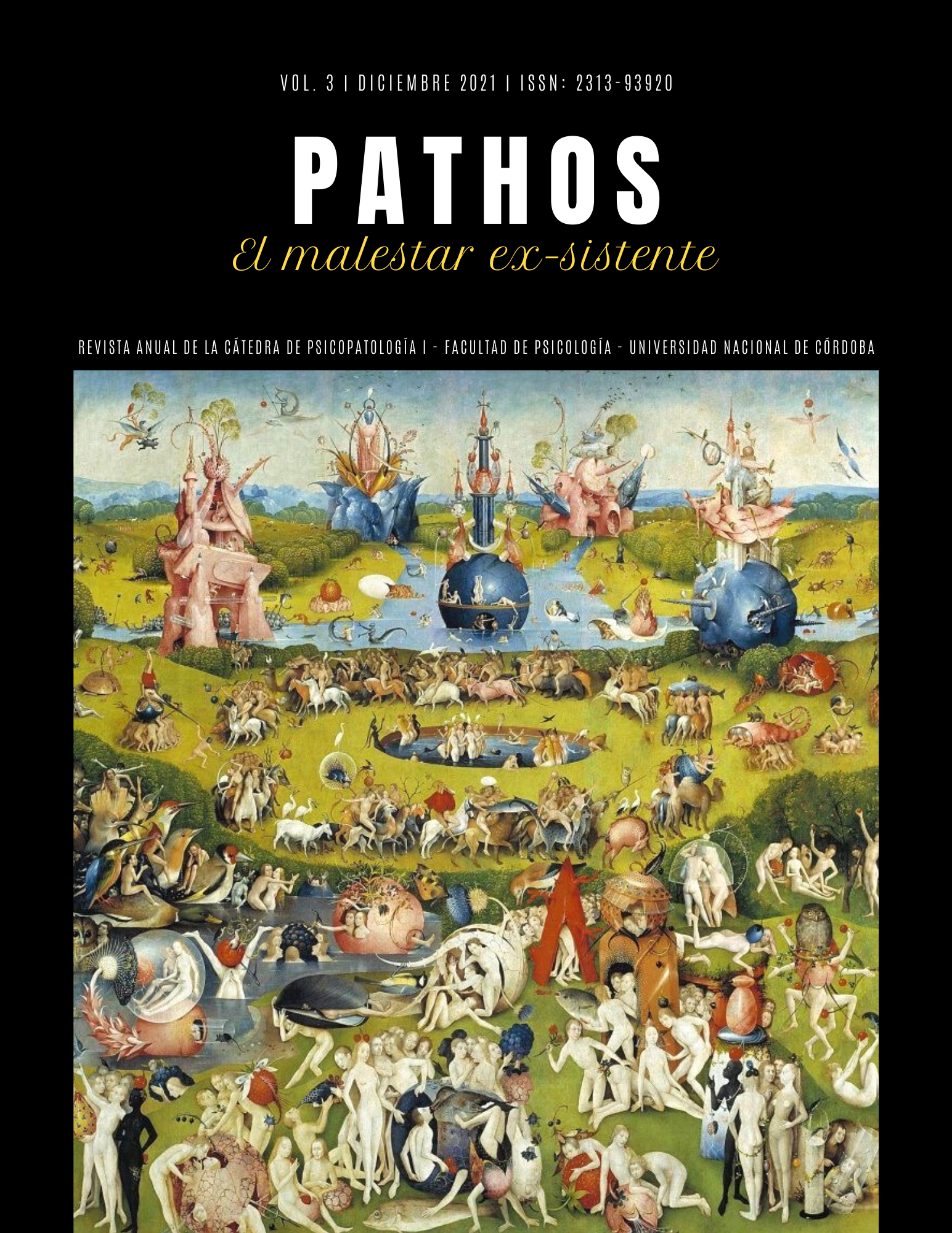Trauma in the culture of malaise and in ours
Keywords:
trauma, culture, discomfort, joyAbstract
The civilization described by Freud in "The malaise in culture" is one that operated a harsh restriction of the sexual and aggressive desires of the individual, with the consequent loss of happiness and increased feelings of guilt, repression being its mechanism par excellence. It was effectively the civilization of neurosis, in which however there was an "arrangement" with the traumatic.
Another story is that of today, in which trauma is revealed as the protagonist on the scene. Thus, the elimination of suffering is evident in a way other than that of the word, which is not inscribed in the formations of the unconscious.
Consequently, our time poses new challenges for Psychoanalysis, perhaps it is concerned a clinic of the beyond the pleasure principle (of enjoyment), a clinic that "provoke" the subject, there where exists only the impact of the Real.
Downloads
References
Barros, M. (1996). La pulsión de muerte,el lenguaje y el sujeto. Argentina: Ed. el Otro.
Cosentino, J. Vidal, E. y Cragnolini M. (1999). El giro de 1920. Buenos Aires: Ed. Imago Mundi.
Freud, S. ([2007a] 1901). Fragmento de análisis de un caso de Histeria. En Amorrortu. (Ed.), Obras Completas (Vol. 7) (pp. 1-107). Buenos Aires: Ed. Amorrortu.
Freud, S. ([2007b] 1915). Pulsiones y destinos de pulsión. En Amorrortu. (Ed.), Obras Completas (Vol. 14) (pp. 105-134). Buenos Aires: Ed. Amorrortu.
Freud, S. ([2007c] 1915). La represión. En Amorrortu. (Ed.), Obras Completas (Vol. 14) (pp.135-152). Buenos Aires: Ed. Amorrortu.
Freud, S. ([2007d] 1930). El malestar en la cultura. En Amorrortu. (Ed.), Obras Completas (Vol.21) (pp. 57-140). Buenos Aires: Ed. Amorrortu.
Freud, S. ([2007e] 1920). Más allá del principio del placer. En Amorrortu. (Ed.), Obras Completas (Vol. 18) (pp. 1-136). Buenos Aires: Ed. Amorrortu.
García, G. (2005) Actualidad del trauma. Buenos Aires: Ed. Grama.
Goldenberg, M. (2014). El malestar del Otro. [Mensaje en un blog]. Recuperado de http://www.circulofreudiano.com.ar/single-post/2014/07/16/-El-Malestar-del-Otro
Laurent, E. (julio, 2002). El revés del trauma. En Virtualia,Revista Digital de la Escuela de la Orientación Lacaniana. Año II. N° 6, pp. 2-7. Recuperado de http://virtualia.eol.org.ar/006/default.asp?notas/elaurent-01.html
Laurent, E. (2004). Los hijos del trauma. En Belaga, G.La Urgencia Generalizada:La Práctica en el Hospital(pp. 23-29). Buenos Aires: Ed. Grama.
Laznik, D. y cols. (2001). Las patologías actuales y los diques pulsionales. En Anuario de Investigaciones. Buenos Aires: Facultad de Psicología, UBA IX.
Miller, J. (2005). El Otro que no existe y sus comités de Ética. Buenos Aires: Ed. Paidós.
Soler, C. (1998). Trauma. Conferencia llevada a cabo en el Hospital Álvarez. Recuperado de http://www.bibliopsi.org/docs/materias/obligatorias/CFP/adultos/lombardi/soler%20-%20el%20trauma.pdf
Downloads
Published
Issue
Section
License
Copyright (c) 2021 Mario Chades

This work is licensed under a Creative Commons Attribution-NonCommercial-ShareAlike 4.0 International License.
Attribution - Non-Commercial - Share Alike (by-nc-sa): No commercial use of the original work or any derivative works is permitted, distribution of which must be under a license equal to that governing the original work.










